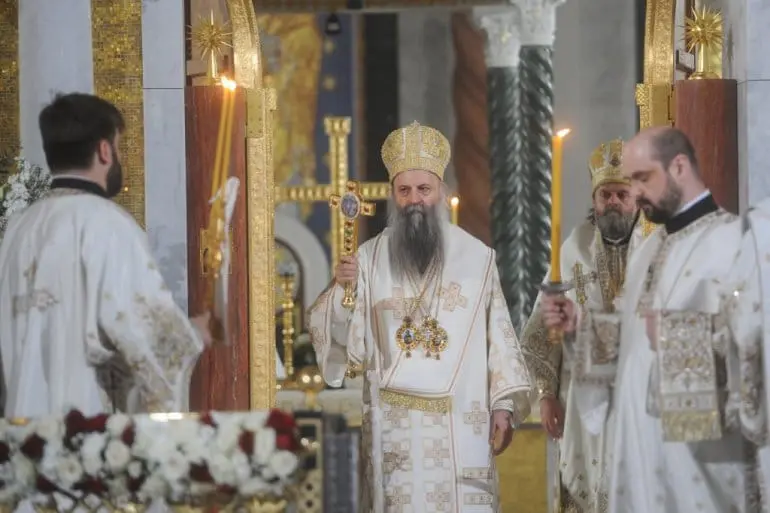The Council of Bishops of the Serbian Orthodox Church restored the liturgical and canonical communion with the Macedonian Orthodox Church – Ohrid Archbishopric. According to the decision, the reasons for the interruption of communication due to the unilateral proclamation of autocephaly in 1967 have been eliminated.
The decision is based on an appeal from the Macedonian Orthodox Church, which recognizes the 1959 statute as the basis for future talks and hopes the Serbian Patriarchate “fraternally clarifies its status” so that there is universal Orthodox consent and recognition.
The Serbian Patriarchate is restoring Eucharistic communion with the Orthodox Church in Northern Macedonia, believing that its current status is “the broadest autonomy, ie full internal independence, granted in 1959.” At the same time, the question of dialogue on future and final canonical status remains open. In particular, the Council of Bishops states:
“Thanks to the Lord and with joy, the Council welcomes the adoption of the universally recognized canonical status, which is the status of the widest possible autonomy, ie full internal independence, granted as early as 1959;
– as this has eliminated the reasons for the interruption of liturgical and canonical communion caused by the unilateral proclamation of autocephaly in 1967, full liturgical and canonical communion is restored;
“By establishing unity on canonical grounds and under the conditions of the canonical order throughout the Serbian Orthodox Church, dialogue on the future and eventual final status of the dioceses in northern Macedonia is not only possible but also purposeful, legitimate and realistic.”
In this forthcoming dialogue, the Serbian Orthodox Church will be guided only and exclusively by ecclesiological-canonical and ecclesiastical-pastoral principles, criteria and norms, without being interested in “realpolitik”, “geopolitics”, “ecclesiastical political considerations”, unilateral initiatives and without to succumb to anyone’s influence and pressure. “
The Serbian Patriarchate leaves it to the Macedonian Orthodox Church – Ohrid Archbishopric to decide what its official name will be, recommending that this be clarified “in a fraternal dialogue with the Greek and other local Orthodox churches”. Furthermore, it does not intend to introduce restrictive clauses on the scope of its jurisdiction at home and in the diaspora.
The “Greek and other local Orthodox churches”, with which the MOC must specify its official name, undoubtedly refer to the Bulgarian Patriarchate, which in its statutes is the legal successor of the Ohrid Archbishopric.
The decision of the Serbian Patriarchate was expected (see here). It was preceded by a similar decision by the Ecumenical Patriarchate, which also welcomed the Orthodox clergy and laity in northern Macedonia into Eucharistic communion, but set limits on the name given to this local church – no “Macedonia” or derivatives. names, as well as its jurisdiction to be limited to the borders of the Republic of Northern Macedonia. The Ecumenical Patriarch also left open the issue of the administrative structure and status of the local Church in northern Macedonia, to be clarified in dialogue with the Serbian Patriarchate.






